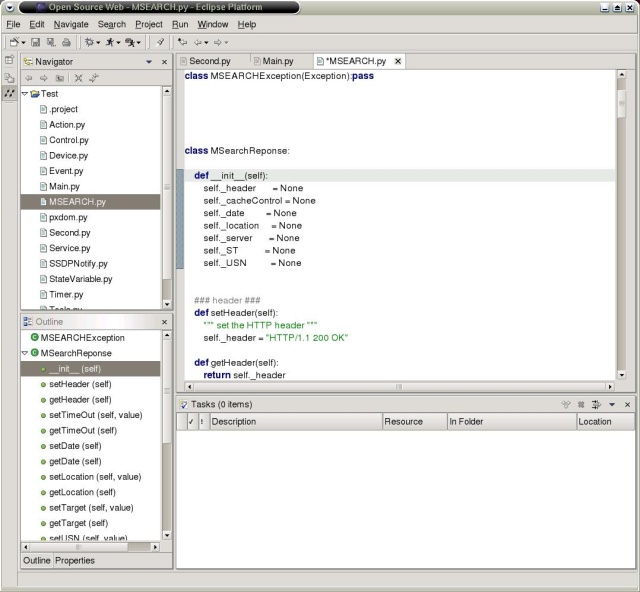This is my first hack over ZPTPage and Modeling to enable regerating of ZPTPage only when Modeling objects changed .. check out class A: (which is a sample fake Modeling Object)
import os,time from ZPTPage import ZPTPage class A: def __init__(self): self.a = 'B' * 50 self.willChange() def getA(self): self.willRead() return self.a def setA(self,value): self.a=value self.willChange() def willRead(self): #print "Read %s" % self pass def willChange(self): self.lastChange = time.time() class HereProxy(dict): def __init__(self,orig): print "New Here" self.orig = orig def __getitem__(self,key): result=getattr(self.orig,key) print "*** %-10s : %s " % ( key,result) cache = self.orig.application().cache[self.orig.hashCache()] if result not in cache: cache.update( {result:result.lastChange }) return result class Main(ZPTPage): def __init__(self): self.a = A() ZPTPage.__init__(self) self.here = HereProxy(self) self.validCache = False def writeHTML(self): if self.request().hasField('A'): self.a.setA(self.request().value('A') ) cachedFileName=os.path.join('/tmp/w/',self.hashCache() +'.html') try: cache = self.application().cache[self.hashCache()] except KeyError: self.application().cache[self.hashCache()] = {} cache = self.application().cache[self.hashCache()] needUpdate = 0 #import pdb;pdb.set_trace() for obj in cache.keys(): try: print obj.lastChange if obj.lastChange != cache[obj]: needUpdate = 1 break except AttributeError: needUpdate = 1 break if needUpdate == 0: print "*** Serving cache %s ***" % self.hashCache() try: data = open(cachedFileName,'r').read() except IOError: needUpdate = 1 if needUpdate: print "*** Regerating %s ***" % self.hashCache() self.buildContext() data = self.template.render() open(cachedFileName,'w').write(data) self.response().setHeader('Content-type', 'text/html; charset=UTF-8') self.writeln(data) def buildContext(self): self.updateContext('text','Toto') def getTime(self): import time return time.time() def getHere(self): #return {'a':A()} return self.here def sleep(self,context): print self.application().cache ZPTPage.sleep(self,context) ### cache ### def hashCache(self): return "MainTemplate"

